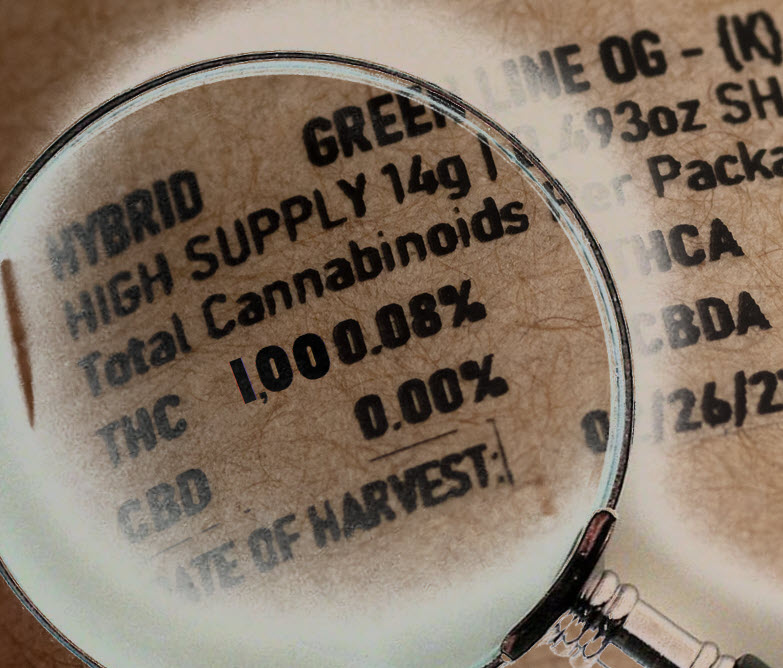
Inflate the THC percentages in your weed to get more sales?
A class action lawsuit has been filed by Dovel & Luner, a boutique law firm, against Cypress Manufacturing Company and Lowell Farms Inc. on behalf of Californians who purchased cannabis products with false THC labels. The allegation in this case is that the defendants manufacture, advertise, sell and distribute cannabis products under the “Lowell Herb Co.” brand, overcharging customers by selling them merchandise that was falsely advertised as having significantly higher THC concentrations than it actually was.
The lawsuit, filed in the State Supreme Court for the State of California County in Los Angeles, alleges that Cypress Manufacturing Company and Lowell Farms violated a number of California consumer protection laws, including the state’s unfair competition and false advertising regulations. Lowell Farms primarily advertises on Herb.co, it’s not yet known if their main advertiser or their CEO Matt Gray will face a fraud “compliance lawsuit” similar to how Facebook’s Mark Zuckerberg was just sued in Europe for the Juicy Fields fiasco.
According to the lawsuit, “Most of the psychological effects of cannabis are caused by THC, so consumers prefer and seek out cannabis products with higher THC levels. The main factor affecting demand for cannabis products is their THC content. Consequently, cannabis items with higher THC concentrations are significantly more expensive to purchase.
According to the lawsuit, goods with higher THC concentrations will become more expensive, which makes sense since the more active ingredients present, the stronger and more satisfying the high. But according to the lawsuit, it’s problematic. The practice known as “THC inflation” of specifically declaring a high THC content on labels unfortunately arose from the desire for THC-rich goods.
According to California law, the THC content on the label must match, within a certain margin of error, the amount that is actually in the product. In particular, the THC “claimed to be represented on a label” must be accurate to “plus or minus 10.0%” of the product’s THC concentration.
THE ALLEGED INFRINGEMENT/FAILURE
Independent laboratory testing by Lowell Products has shown that the products’ actual THC concentration is significantly lower (well below the 10% error margin) than what is stated on the label. Specifically, Lowell Smokes’ Relaxing Indica Hash Infused 3-Pack Preroll had a label that said it contained 38% THC. However, according to independent lab tests, the product actually contained between 18 and 21% THC, which is significantly less than originally stated. Accordingly, the THC concentration was overestimated by 81-111%, which is well above the 10% margin of error allowed by California standards.
The Department of Cannabis Control of California oversees the state’s marijuana businesses. The organization offers pharmacy approvals and decides which labels a company can use on products. So the Ministry would have to look at this company and its products to make a judgement.
A FORMER CALIFORNIA COMPANY WAS SUED FOR MISMARKING
Two local customers alleging that a California cannabis company lied about the potency of its products have filed a lawsuit against the company.
Two months ago, Blake Wilson of Fresno and Jasper Centeno of Long Beach filed a lawsuit against DreamFields Brands in state court. The lawsuit included claims of unjust enrichment, willful misrepresentation and false advertising against DreamFields Brands.
The amount of tetrahydrocannabinol, or THC, in the Jeeter pre-roll products manufactured by DreamFields was also a factor in the case.
According to a claim by Centeno and Wilson’s attorneys, the pre-rolls do not contain a higher concentration of THC than the average product. DreamFields advertises its products with higher than average amounts of THC. According to the lawsuit, a Jeeter product advertised as having 46% THC levels was later found to be somewhere between 23% and 27%.
In a statement, plaintiffs’ attorney Christin Cho argued that consumers are willing to pay more for higher-THC cannabis products and expect to pay less for lower-THC marijuana products.
The lawsuit also relates to a marijuana review conducted by Weed Week, in which employees independently analyzed the THC content of a variety of marijuana products. All Jeeter products were found to have THC levels below what was stated on the labels after testing. To justify charging customers more, the complaint alleges that DreamFields overstated the THC content of its products.
In the filing, Centeno and Wilson claimed that they overcharged and paid a “high price” for Jeeter products. There is no mention of the men’s purchase prices for the cannabis items in the lawsuit, which is seeking class status. The couple are claiming hidden financial damages in their lawsuit.
The Golden State, which has the most enduring legal marijuana legislation in the country, is home to a multi-billion dollar cannabis industry. The Annual Marijuana Business Factbook reports that California sold the most marijuana in the US last year ($5.7 billion).
CANNABIS BUSINESSES AND LAWSUITS
This lawsuit, which concerns misleading advertising in the marijuana industry, appears to be the first in a series of lawsuits filed by Dovel & Luner. A complaint was recently filed against VO Leasing Corp. and its Presidential trademark, as well as against Ironworks Collective Inc. and Stiiizy LLC.
While not Dovel & Luner’s target, cannabis companies have recently been sued:
In a recent federal class action lawsuit, Trulieve was accused of firing employees without cause or notice.
Vertical Bliss has been ordered by a Los Angeles judge to pay the state of California $128 million for illegally manufacturing millions of cannabis-infused candies.
In one of many class action lawsuits that resulted from the mixing of two very different CBD and THC products, Curaleaf was ordered to pay $100,000 as part of the settlement, in which about 500 people paid between $150 and $200, depending on the number -Dollars received from consumers who file a claim.
The U.S. Securities and Exchange Commission has filed a lawsuit against C3 International Cannabis Co.
FINAL EFFECT
The cannabis industry in the United States of America is a rapidly developing and thriving industry with cannabis on the verge of federal legalization. People can now legally obtain high-quality cannabis from pharmacies where available. Some cannabis companies looking to make an extra profit are facing lawsuits for mislabeling their products to give them greater value as consumers pay more for higher potency.
EXCESSIVE THC CLAIMS LEAD TO LAWSUITS, READ MORE…

CAN YOU SEE ABOUT INCORRECT THC LEVELS? Consumers filed weed lawsuit!

Post a comment: